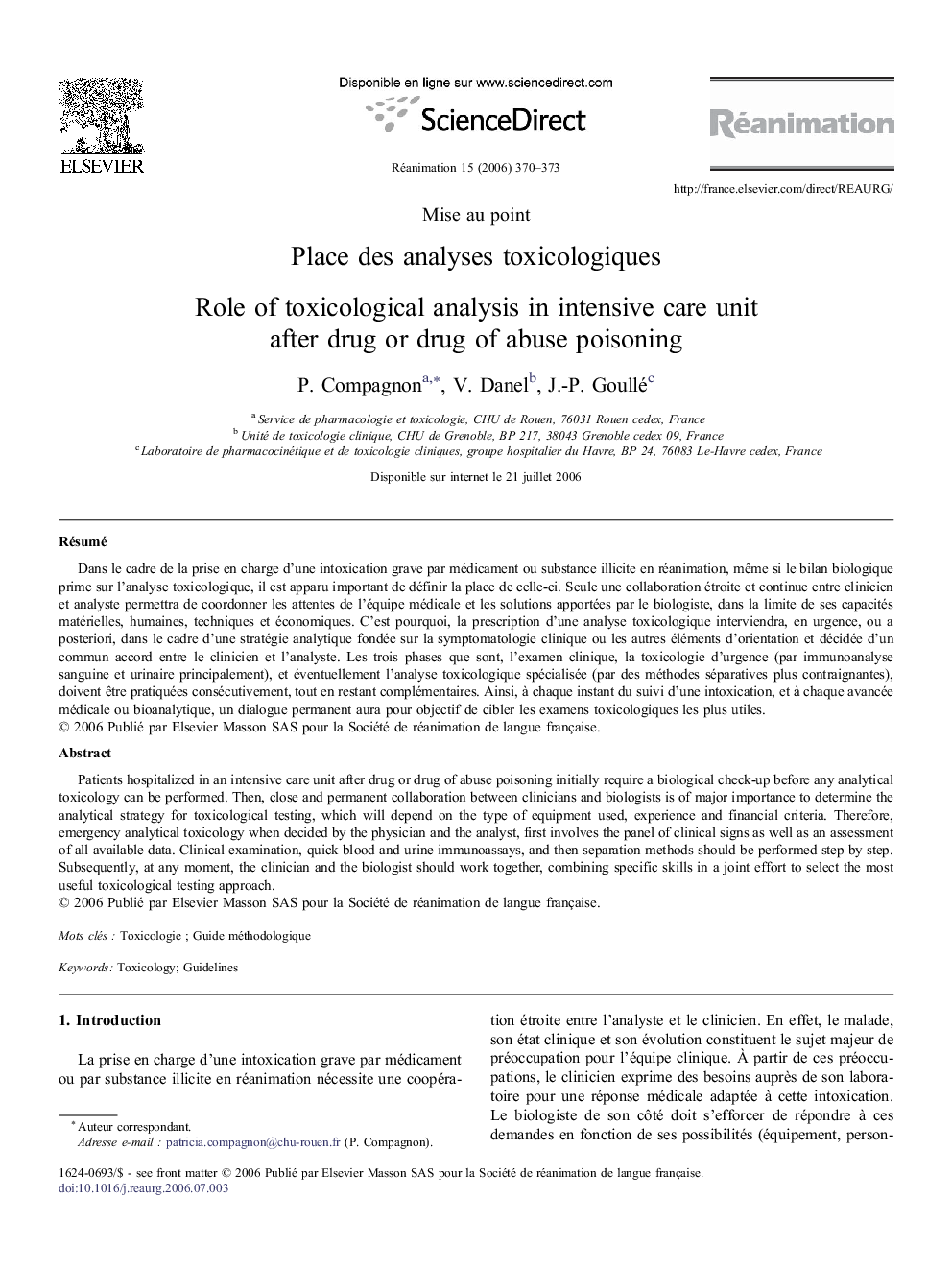| Article ID | Journal | Published Year | Pages | File Type |
|---|---|---|---|---|
| 2613120 | Réanimation | 2006 | 4 Pages |
Abstract
Patients hospitalized in an intensive care unit after drug or drug of abuse poisoning initially require a biological check-up before any analytical toxicology can be performed. Then, close and permanent collaboration between clinicians and biologists is of major importance to determine the analytical strategy for toxicological testing, which will depend on the type of equipment used, experience and financial criteria. Therefore, emergency analytical toxicology when decided by the physician and the analyst, first involves the panel of clinical signs as well as an assessment of all available data. Clinical examination, quick blood and urine immunoassays, and then separation methods should be performed step by step. Subsequently, at any moment, the clinician and the biologist should work together, combining specific skills in a joint effort to select the most useful toxicological testing approach.
Keywords
Related Topics
Health Sciences
Medicine and Dentistry
Emergency Medicine
Authors
P. Compagnon, V. Danel, J.-P. Goullé,
